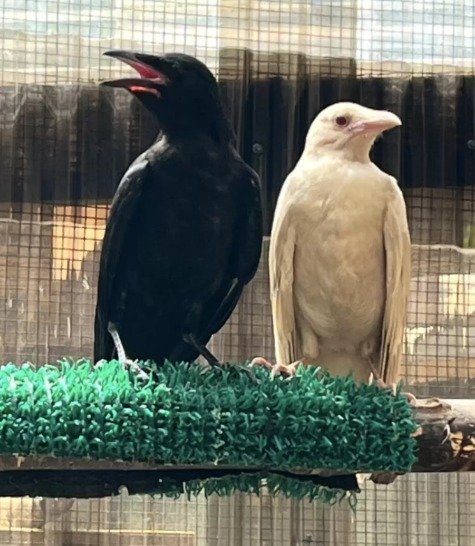
Last month, staff members at A Place Called Hope received a call about an injured white bird found nearby. The concerned staffers gave the caller guidance on how to transport the animal to the rehab center and asked for a photo of the bird. When staffers saw the image, they realized the rescuer may have just stumbled on someone extremely rare.
Their suspicions were confirmed when the bird arrived — the caller had rescued a leucistic fish crow.
“We immediately felt honored to have admitted such a rarity,” A Place Called Hope director Christine Cummings told The Dodo. “We realize the odds are slim to meet a bird like this in person. We are considering her to be a gift or a blessing for all the hard work this center achieves.”

According to the National Audubon Society, leucism, which is similar to albinism, is a condition that often results in very pale coloring. However, unlike albino birds, leucistic birds are able to produce melanin, and so their eyes remain darkly colored while their feathers are usually all white.
Birds like this are extremely rare. According to Avian Report, only one bird in every 30,000 is leucistic or albinistic.

Safe at the rescue, the bird began recovering from injuries she’d sustained. Rescuers realized she may have been having a hard time due to her severely limited vision and that it would be impossible for her to safely return to the wild. Luckily, A Place Called Hope was happy to give the bird a permanent home at the rescue.
“She is safe now in a captive environment where she will learn to navigate and trust [that] her surroundings won’t change,” Cummings said.

Soon, this unique girl will be boarding with another resident rescue crow. Together, they’ll be able to rely on each other for support as they continue to thrive at the rehabilitation center.
“The bird is doing great and will live a cherished life here,” Cummings said. “We look forward to her future and can’t wait to give her a permanent, appropriate name.”